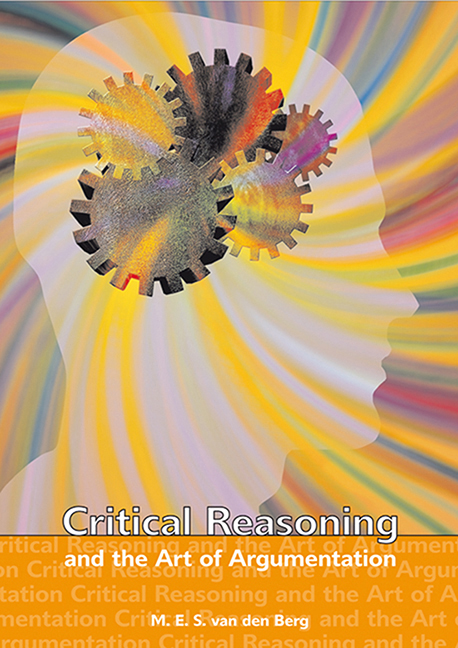Book contents
- Frontmatter
- Contents
- Preface
- CHAPTER 1 What is critical reasoning?
- CHAPTER 2 Obstacles to clear thinking: Preconceived ideas and fallacies
- CHAPTER 3 Working with arguments
- CHAPTER 4 How to analyse arguments
- CHAPTER 5 Definitions, counterexamples and counterarguments
- CHAPTER 6 Evaluating arguments
- CHAPTER 7 Applying your knowledge and skills to the evaluation of arguments
- CHAPTER 8 Constructing arguments and writing argumentative essays
- References
- Glossary
- Index
CHAPTER 2 - Obstacles to clear thinking: Preconceived ideas and fallacies
Published online by Cambridge University Press: 20 February 2020
- Frontmatter
- Contents
- Preface
- CHAPTER 1 What is critical reasoning?
- CHAPTER 2 Obstacles to clear thinking: Preconceived ideas and fallacies
- CHAPTER 3 Working with arguments
- CHAPTER 4 How to analyse arguments
- CHAPTER 5 Definitions, counterexamples and counterarguments
- CHAPTER 6 Evaluating arguments
- CHAPTER 7 Applying your knowledge and skills to the evaluation of arguments
- CHAPTER 8 Constructing arguments and writing argumentative essays
- References
- Glossary
- Index
Summary
Arguments, like men, often are pretenders.
PlatoWe engage in critical reasoning whenever we give reasons in support of our beliefs and claims. For example, if we claim that active involuntary euthanasia is morally and legally wrong then, if we want to engage in critical reasoning, we have to give reasons to support our claim. Here is another example: if we claim that reincarnation is true then, to engage in critical reasoning, we have to provide grounds for holding this belief. In fact, a large part of critical reasoning involves providing reasons or evidence for our claims and beliefs. The better the reasons and arguments we offer, the closer we come to showing that our claims are acceptable and the more likely we are to persuade our audience that our point of view is correct.
Often, though, we fail to do this or we are careless in our reasoning. We become lazy and do not reflect critically on the beliefs and ideas we hold, or we may allow ourselves to be persuaded by the fallacious reasoning and preconceived ideas of others.
The aim of this chapter is to help you become aware of how and why we go wrong when we reason. As critical thinkers, we need to develop our analytical skills to distinguish good reasoning from bad reasoning (not only in the arguments of others, but also in our own arguments), to reflect critically on issues, and to rethink our own position. In this chapter, we will first explore the obstacle of preconceived ideas and then discuss a number of common fallacies in reasoning.
Preconceived ideas
Preconceived ideas are societal assumptions that have a decisive influence on our thinking. Preconceived ideas pose obstacles to clear thinking, simply because preconceived ideas, by their very nature, are ideas that have not been subject to critical reflection.
Where do preconceived ideas come from? Preconceived ideas are imbedded in all cultures and get their power from social conditioning. We all grow up in societies where we inherit certain biased beliefs, values and attitudes from our parents, school teachers, religious affiliation, peer groups, and friends. The customs, norms, values and social institutions we grow up with have a crucial influence on our worldviews, that is, the way we see the world, other people and ourselves.
- Type
- Chapter
- Information
- Critical Reasoning and the Art of Argumentation , pp. 9 - 36Publisher: University of South AfricaPrint publication year: 2010



